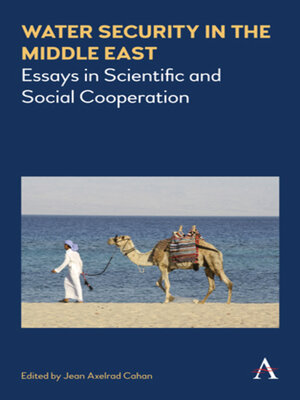Water Security in the Middle East
ebook ∣ Essays in Scientific and Social Cooperation · Science Diplomacy: Managing Food, Energy and Water Sustainably
By Jean Axelrad Cahan

Sign up to save your library
With an OverDrive account, you can save your favorite libraries for at-a-glance information about availability. Find out more about OverDrive accounts.
Find this title in Libby, the library reading app by OverDrive.



Search for a digital library with this title
Title found at these libraries:
| Library Name | Distance |
|---|---|
| Loading... |
Water Security in the Middle East argues that, while conflicts over transboundary water systems in the Middle East do occur, they tend not to be violent nor are they the primary cause of a war in this region. The contributors in this collection of essays place water disputes in larger political, historical and scientific contexts and discuss how the humanities and social sciences contribute towards this understanding. The authors contend that international sharing of scientific and technological advances can significantly increase access to water and improve water quality. While scientific advances can and should increase adaptability to changing environmental conditions, especially climate change, national institutional reform and the strengthening of joint commissions are vital. The contributors indicate ways in which cooperation can move from simple coordination to sophisticated, adaptive and equitable modes of water management.
|Water Security in the Middle East explores the extent and nature of water security problems in transboundary water systems in the Middle East. This collection of essays discusses the political and scientific contexts and the limitations of cooperation in water security.
The contributors argue that while conflicts over transboundary water systems in the Middle East do occur, they tend not to be violent nor have they ever been the primary cause of a war in this region. The authors place water disputes in larger political, historical and scientific contexts and discuss how the humanities and social sciences could contribute more towards this understanding. They also contend that international sharing of scientific and technological advances can significantly increase access to water and improve water quality. While scientific advances can and should increase adaptability to changing environmental conditions, especially climate change, national institutional reform and the strengthening of joint commissions are vital. The contributors indicate ways in which transboundary cooperation may move from simple and intermittent coordination to sophisticated, adaptive and equitable modes of water management.







